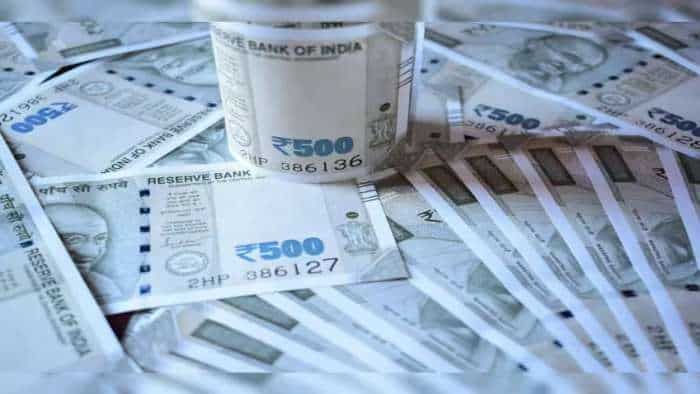Heat can kill corona! COVID-19 killed by sunlight, warmer temperatures, humidity, says White House
The coronavirus outbreak in the US has killed nearly 50,000 Americans and infected more than 860,000 till date.

Sunlight kills COVID-19 while warmer temperatures and humid weather significantly damage the virus, measured in terms of the Coronavirus' half life or the time it takes to cut its potency in half, according to the latest breakthrough research from the US Department of Homeland Security`s most advanced bio containment lab, released at the White House here on Thursday.
The coronavirus outbreak in the US has killed nearly 50,000 Americans and infected more than 860,000 till date. Research around the effect of temperature and humidity has been gaining traction for weeks, these are the most downloaded papers on research websites but this is the first time the US government has put an official stamp on initial results of temperature tests on COVID-19.
"Our most striking observation to date is the powerful effect that solar light appears to have on killing the virus, both on surfaces and in the air. We`ve seen a similar effect with both temperature and humidity as well. Increasing the temperature and humidity or both is generally less favourable to the virus," Bill Bryan, chief of the science and technology directorate at the US Department of Homeland Security, said.
In a room at 70-75F temperature with 20 per cent humidity, the half life of the virus is about an hour, according to Bryan. "But you get outside and it cuts down to a minute and a half, very significant difference when it when it gets hit with UV rays," he said.
According to the same research, the virus` half life on surfaces reduces dramatically with a combination increase of temperature and humidity.
When the temperate is kept constant at 70-75F and only the humidity is cranked up from 20 per cent to 80 per cent, the virus` half life is shown to crash from 18 hours to 6 hours. If the temperature is increased to 95F, the half life sinks to barely 60 minutes.
Bryan said this testing was done at DHS` advanced bio containment lab in Maryland, just outside the national capital.
Pointing to charts with data from experiments on the COVID-19 virus, Bryan said the virus half life plunges "drastically" with exposure to higher temperatures and even minimal exposure to humidity.
Bryan said the DHS bio containment lab is the only one in America that has the capability to do the kind of testing that has led to the research on the virus` UV and temperature tolerance.
Bryan explained the mechanics of the COVID-19 temperature tolerance experiment in simple terms. He said the virus was first locked into a 5 gallon bucket and suspended in the air inside. "We`re able to take a particle of a virus and suspend it in the air inside of this drum and hit it with various temperatures, various humidity levels, multiple different kinds of environmental conditions to include sunlight. And we`re able to measure the decay of that virus while it`s suspended in the air. This is how we do our aerosol testing."
"While there are many unknown links in the COVID-19 transmission chain, we believe these trends can support practical decision making to lower the risks associated with the virus," Bryan said.
The DHS team has also tested the effect of bleach and isopropyl alcohol on the virus, "specifically in saliva and respiratory fluids".
"And I can tell you that bleach will kill the virus in five minutes, isopropyl alcohol will kill the virus in 30 seconds, and that`s with no manipulation. No rubbing."
Get Latest Business News, Stock Market Updates and Videos; Check your tax outgo through Income Tax Calculator and save money through our Personal Finance coverage. Check Business Breaking News Live on Zee Business Twitter and Facebook. Subscribe on YouTube.
RECOMMENDED STORIES

Top 7 Large and Mid Cap Mutual Funds With up to 21% SIP Returns in 10 Years: Rs 11,111 monthly SIP investment in No. 1 fund has sprung to Rs 40,45,114; know about others

Top Multicap Mutual Funds by SIP Returns: Rs 5,000 monthly investment in these schemes has grown up to Rs 6.65 lakhs in 5 year

Power of Compounding: How soon will monthly SIP of Rs 8,000, Rs 12,000, and Rs 15,000 reach Rs 6 crore corpus target?
11:41 AM IST










 New Covid wave in Singapore: No need for panic, assures Tamil Nadu government
New Covid wave in Singapore: No need for panic, assures Tamil Nadu government 'Single-minded focus on safety first, followed by efficacy': Bharat Biotech highlights 5 key milestones of COVAXIN
'Single-minded focus on safety first, followed by efficacy': Bharat Biotech highlights 5 key milestones of COVAXIN COVID-19 Update: India reports 159 new coronavirus cases, 3 fresh deaths
COVID-19 Update: India reports 159 new coronavirus cases, 3 fresh deaths COVID-19 Update: India reports 441 new coronavirus cases, no fresh deaths
COVID-19 Update: India reports 441 new coronavirus cases, no fresh deaths Coronavirus news: 3,422 active COVID-19 cases recorded in India
Coronavirus news: 3,422 active COVID-19 cases recorded in India